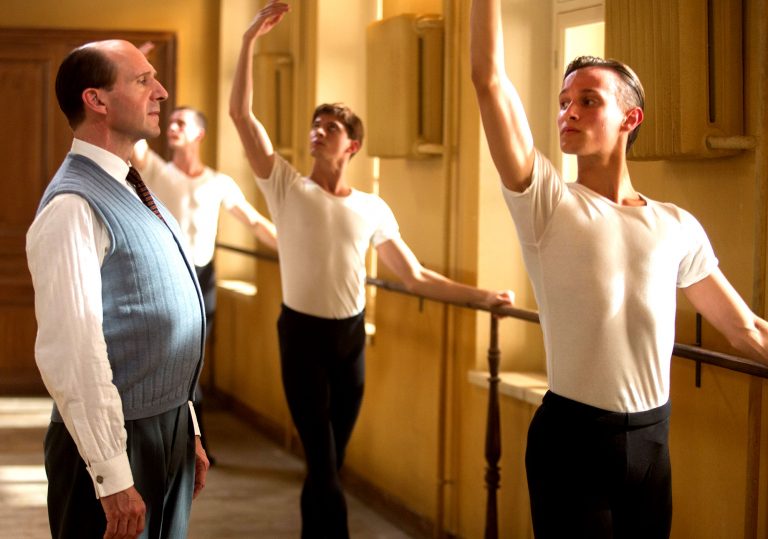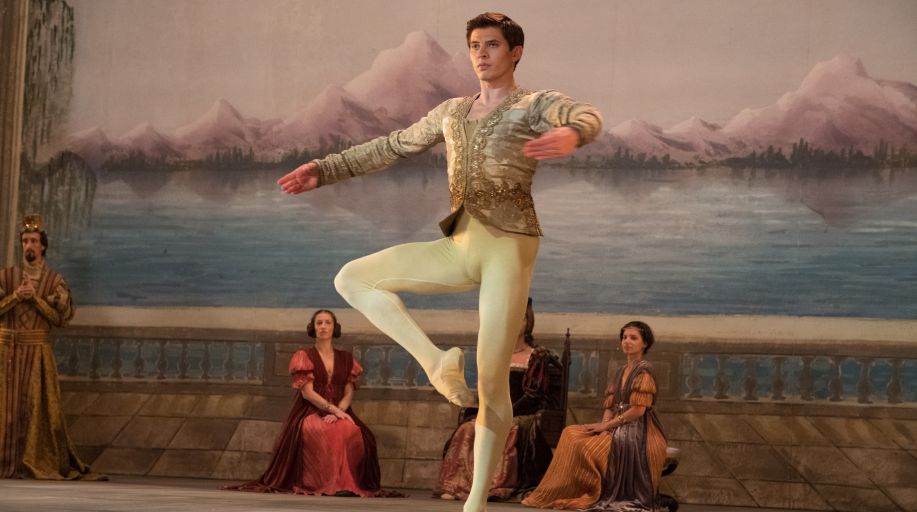The White Crow
12¦ Blu-ray, DVDWhen an actor decides to have a go at being behind the camera, it’s a natural transition. Even more so if they’ve spent a number of years in the acting game. That’s exactly what acclaimed British actor Ralph (Nathaniel Twisleton-Wykeham-) Fiennes did in 2011, when he directed Coriolanus. Two years later he helmed The Invisible Woman, which sadly wasn’t a comic book title.
Five years later, he puts on the director’s cap once again for this look at the life of one of the greatest male ballet dancers of all time, Rudolf Nureyev.

Now do three double twists without losing eye contact with me.
Having been born on a train, to say Rudolph (Oleg Ivenko) came from humble beginnings is a vast understatement. And yet he never let it hold him back. After his family won a ticket to a fancy ballet performance, he knew exactly what he wanted to do with his life – dance.
Even when he managed to get into a prestigious Russian dancing school, he promised himself to work twice as hard as any student, with the aim of not just being a great dancer, but the best.
His dedication paid off, as he was selected to visited Paris, along with a number of other students, to represent their great nation and show the world how gloriously talented they all were.
Whilst there however, he begins making friends with French dancers and their supporters, like Clara Saint (Adèle Exarchopoulos), and he starts to think that life outside of the Soviet Union could be very different indeed.

He said it was because his trousers were giving him jib.
This third stab at directing clearly indicates that Ralph is only interested in doing the job if the content is on the cerebral/pretentious side. But when you consider how many posh middle names he has, it’s sort of acceptable.
What isn’t as acceptable is how terribly dry the film feels. Ballet is a form of dance that is expressive, sensual and sexual, all of which this film sadly lacks. The direction is adequate, with some of the early flashback material echoing Spielberg’s style in Schindler’s List, which of course Fiennes starred in.
Where he’s more successful is in drawing out an impressive debut from dancer Ivenko. Not only does he resemble Nureyev, as well as pull off all the necessary dance moves, he does well in emoting the fairly complex emotions – both good and bad – that the great dancer produced.
Another missed opportunity it seems is the fact that the film somehow underplays how talented Nureyev was. If an audience has no knowledge of his legendary ability as a ballet dancer, there is fair chance that they would still be none the wiser after watching this. And considering the screenplay was written by renowned playwright and screenplay scribe David Hare, this is both surprising and disappointing.
If the film focused less on Nureyev’s fascination with trains, and concentrated on that determined drive, for better or worse, to be the best dancer on the planet, Fiennes’ film would have benefitted greatly. As it stands, on tippy toes, it lacks the charisma and finesse that, quite frankly, the biopic of one of the greatest dancers of all time, rightly deserves.
